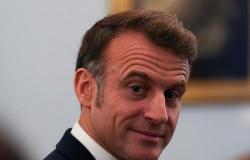Despite the adoption of the motion of censure against the government of Michel Barnier, the financial markets remained insensitive to this decision while awaiting the continuation of the political negotiations.
The motion of censure has, for the moment, not had the same stock market effects as the dissolution of the National Assembly by Emmanuel Macron. Last June, the CAC 40 fell 6.23% in the week following the announcement of the dissolution. For this week, the flagship index of the Paris stock market is well on its way to making weekly gains with three sessions already closed in the green. However, 331 deputies voted this Wednesday for the motion tabled by the New Popular Front (NFP) and overthrew the government, a first since 1962.
Analysts are fairly unanimous on the insensitivity of financial markets to the latest political upheavals: “The CAC 40 has fallen a lot previously and, in reality, it is not in reaction to the fall of the government, it was already recorded, estimates Philippe Cohen, portfolio manager for Kiplink Finance. We see a lot of cheap buying at work”he continuesAFP.
Markets predict imminent appointment of new prime minister
Beyond a digestion of the crisis which would already be carried out by the markets, observers are already anticipating a rapid appointment of a new prime minister. The President of the Republic must speak this evening and those close to him suggest that the appointment could take place as soon as he speaks.
At AFP, Alexandre Baradez, senior analyst at IG, explains that the market “understood that a new prime minister would be appointed fairly quickly and the first party declarations do not show a desire to block and do not seem to close the door to new discussions.” On the other hand, he recalls that it remains “a very short-term reaction to be interpreted cautiously”qualified Mr. Baradez.
Before the adoption of the motion of censure, the analyst already mentioned the issues for the financial markets behind his political turbulence: “The markets are not so disturbed by the political scenariohe summarizes. Above all, they are waiting to have a clear vision of the budgetary trajectory. If we delay positioning ourselves, France will not have a sustainable budget to reduce its deficit, the downgrades from the rating agencies will continue and the stress will become greater.”
The budgetary trajectory worries investors more
In this context, the Moody’s agency reacted this Wednesday evening by evoking a cocktail “negative”but above all “higher deficits, an increased debt burden and higher financing costs, with significant annual borrowing needs.”
The rapid appointment of a successor to Michel Barnier is the preferred scenario for the financial markets. They are mainly interested in the deadlines for relaunching the budgetary process, but above all to know the trend for the coming months.
“In this situation, the markets cannot change their minds on French debt, they will inevitably be more wary of France on the markets”underlines Alexandre Baradez. The main concerns revolve around a backlash at the start of 2025 rather than short-term repercussions.
Do the markets have a preference for the next government?
Hypotheses about the name of the next tenant of Matignon are present in all discussions, but the markets do not seem to designate favorites. “Several names are circulating like Cazeneuve, Bayrou, Baroin or Lecornu, but the markets are not sensitive to politics for the momentajoute Antoine Andreani, Head of Research chez XTB. We could have imagined that a centrist government, which struck a balance between the extreme right and the extreme left, would have been more positive, but that is not the case.”
For Antoine Andreani, the financial markets would be more sensitive to a technical government if the political upheavals were to continue for the coming weeks: “Financial markets are extremely cynical on this issueestimates the analyst. A government that reduces the budget deficit and implements budgetary austerity would necessarily please the markets.” Still far from being the solution favored by the Élysée, this possibility has still loomed since the dissolution.
Several socialists are also pushing for the appointment of a prime minister «technique» from no political family to try to avoid censorship until the next elections. Italy has managed to form two technical governments in recent years with Mario Monti (2011-2013) then Mario Draghi (2021-2022). However, the probability of such a hypothesis in France remains slim…
The financial markets can also be reassured by the good humor of Wall Street which is reflected to a lesser extent on the CAC 40. Before the motion of censure, Emmanuel Macron had also recalled all the arguments to show the solidity of the economy French: “France is a rich, solid country, which has made many reforms and which maintains them, which has stable institutions, a stable Constitution”. The second largest economy in the euro zone can also count on the “umbrella of the European Central Bank (ECB)” to limit tensions on the markets. In this context, investors therefore have numerous arguments not to fall into financial panic, at least in the short term.






